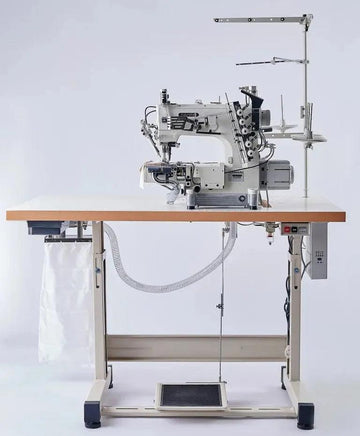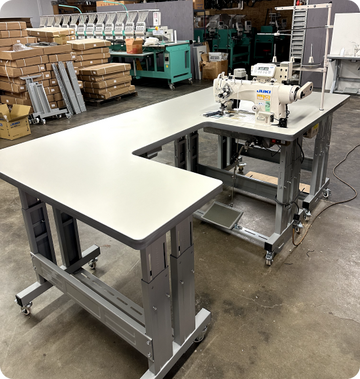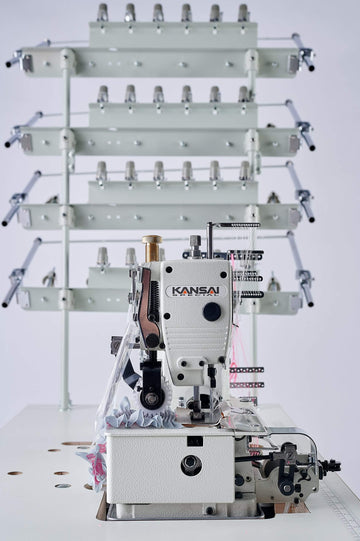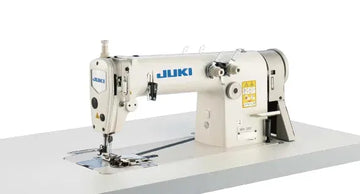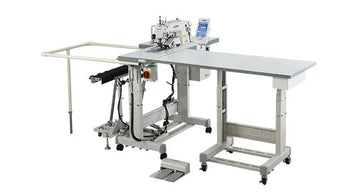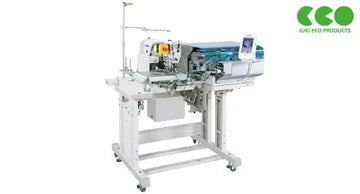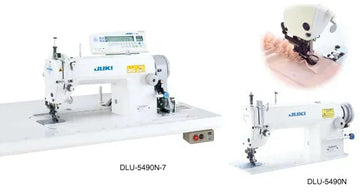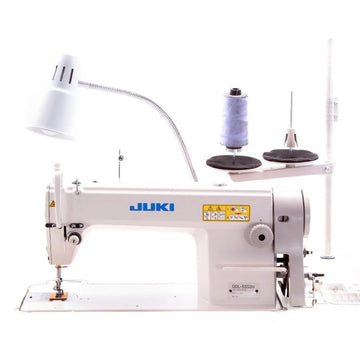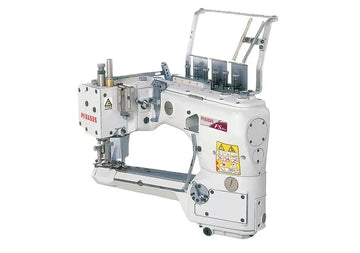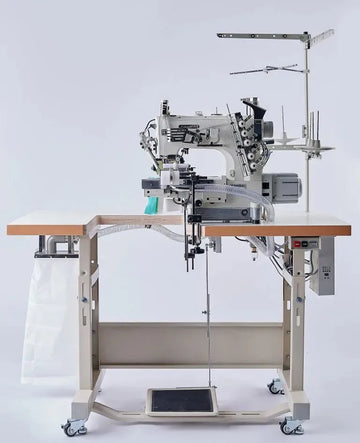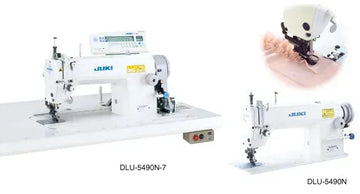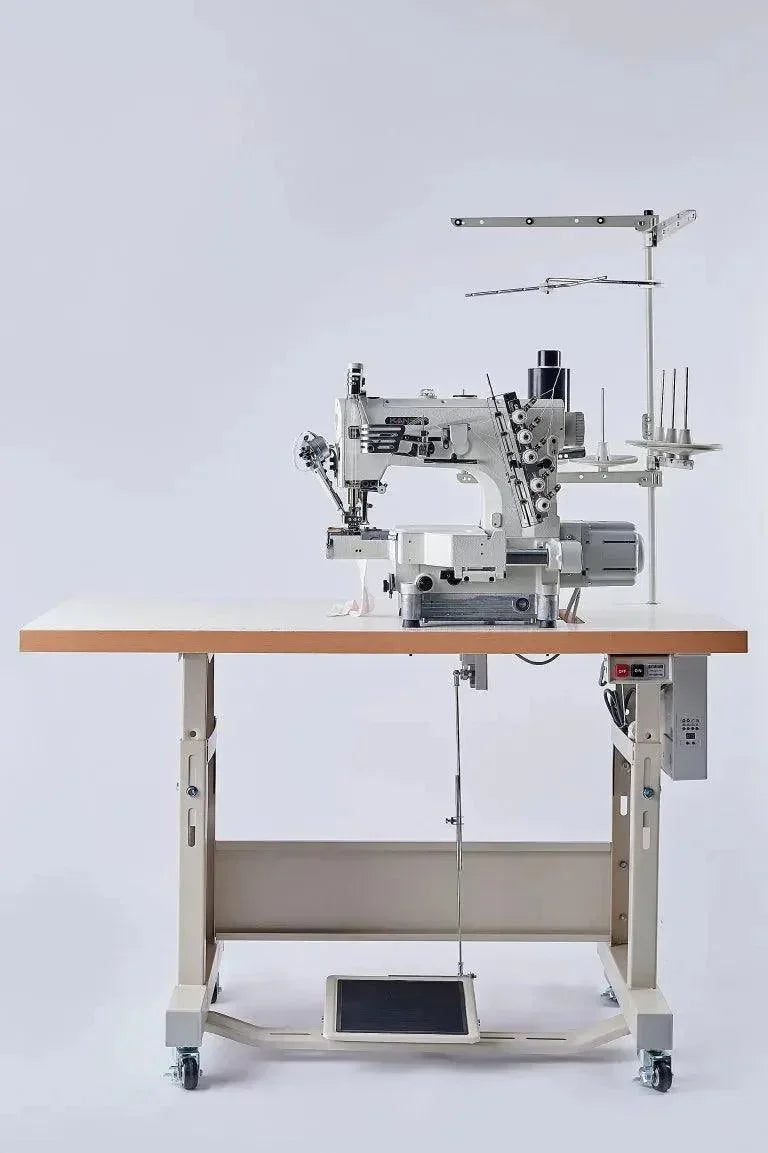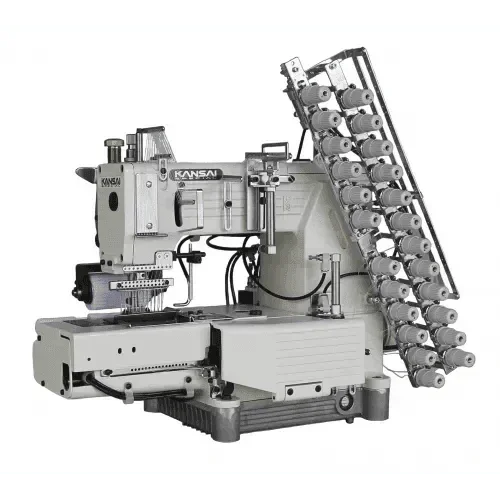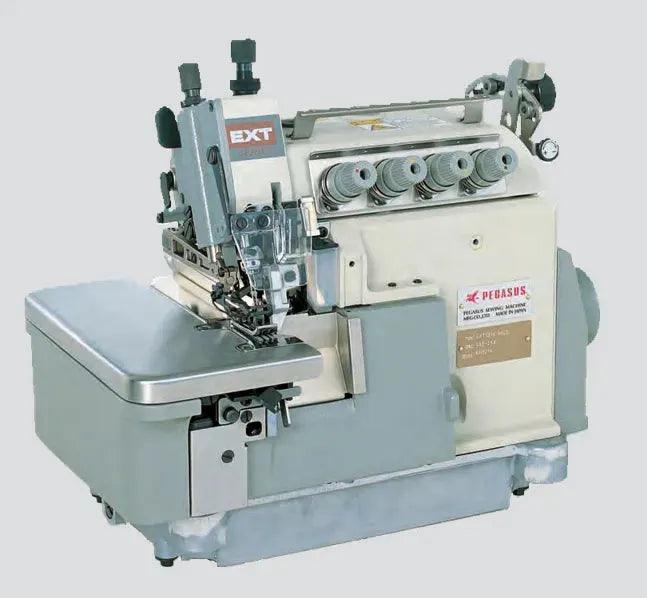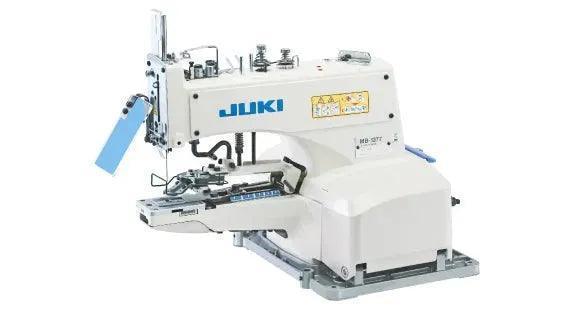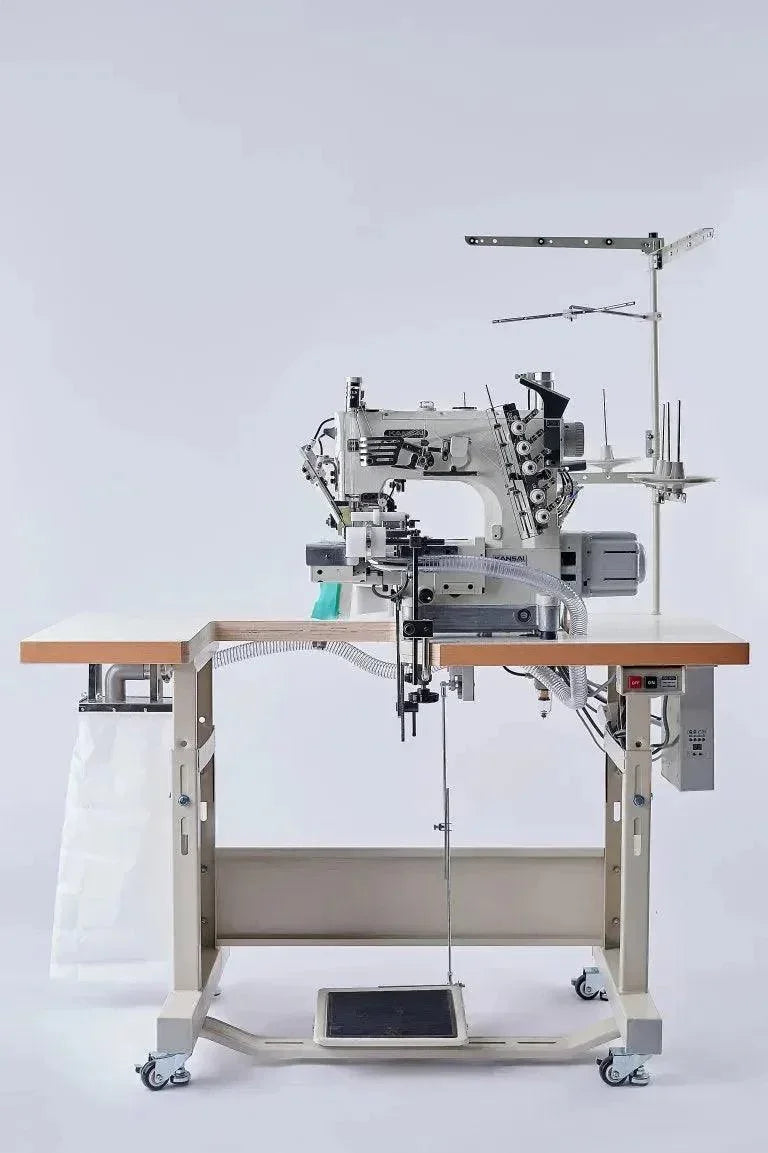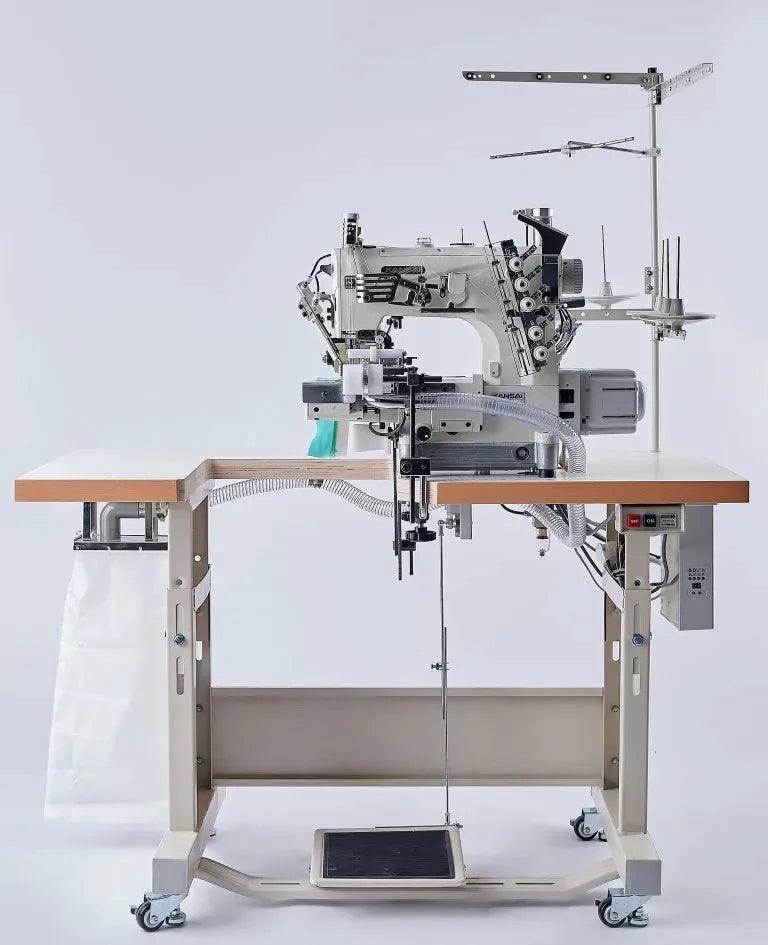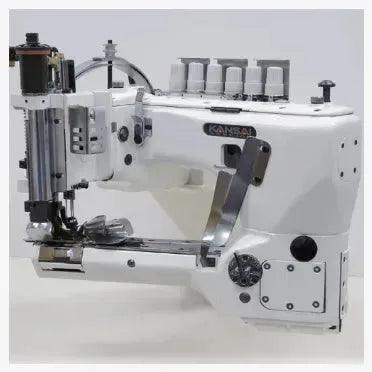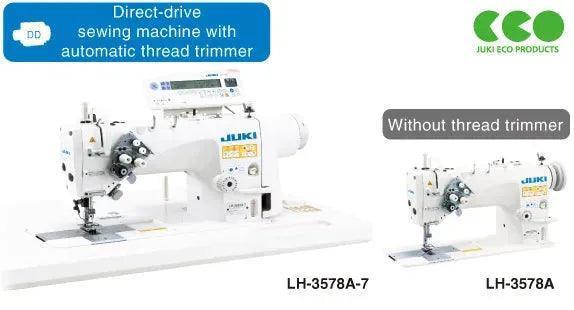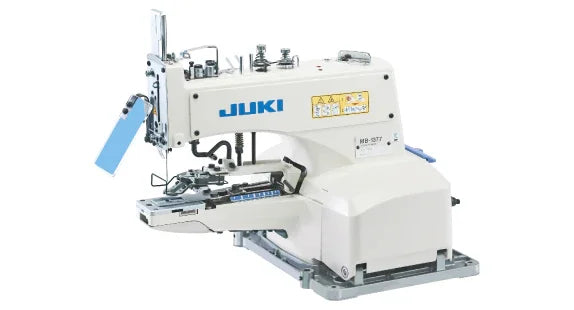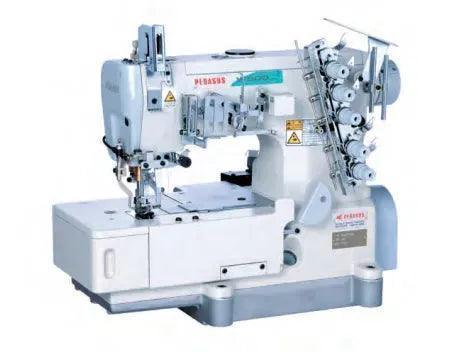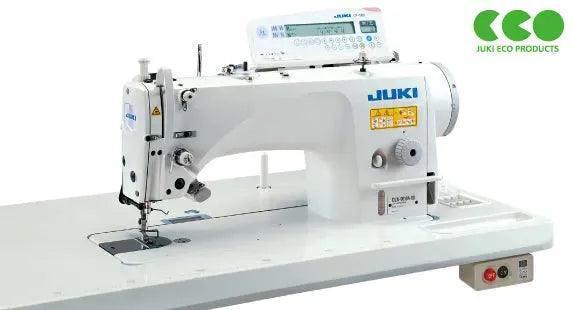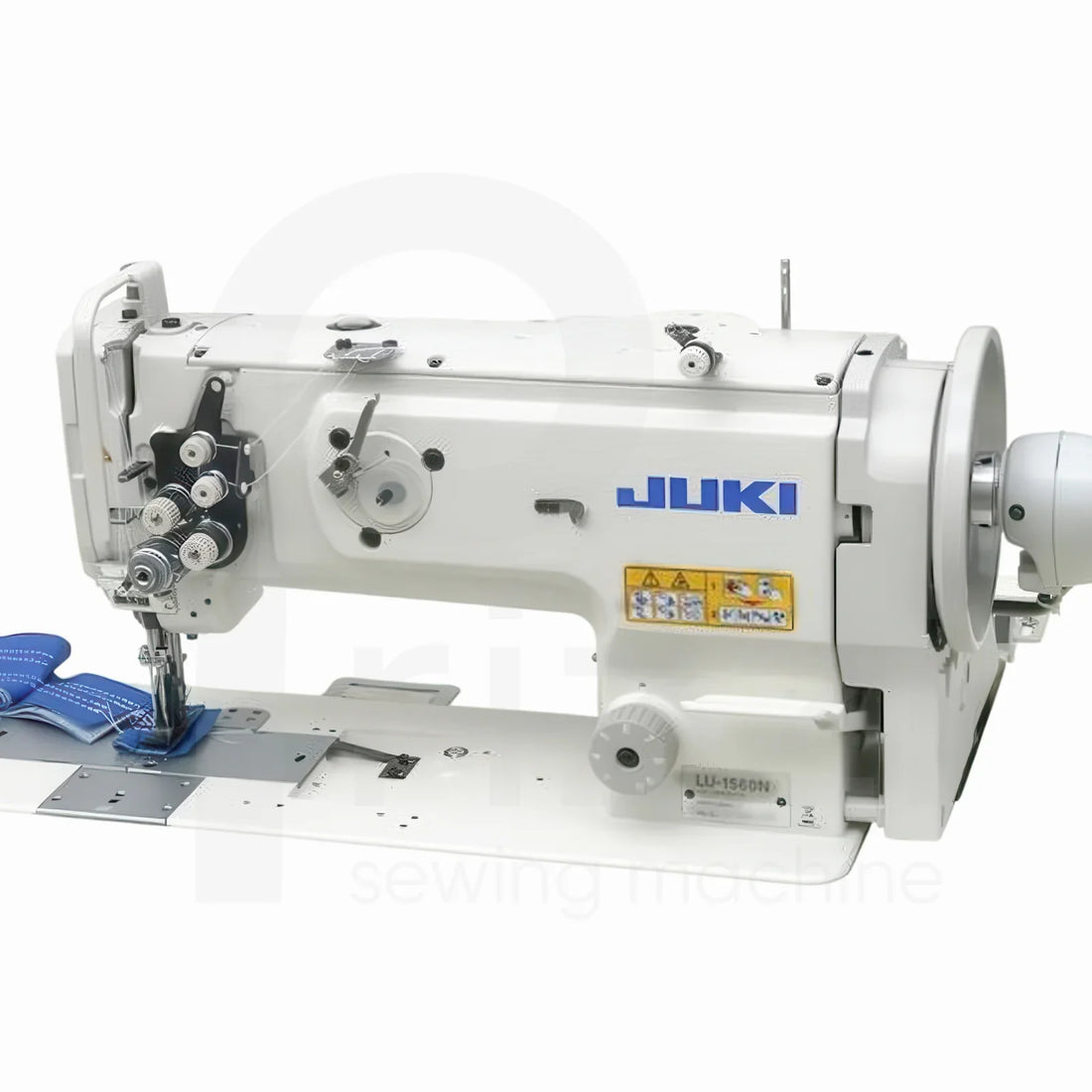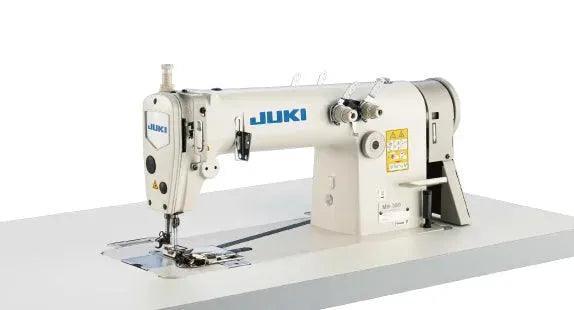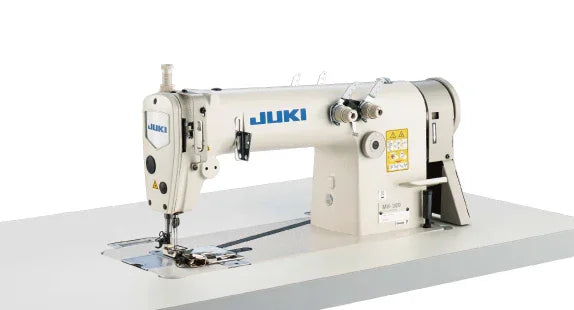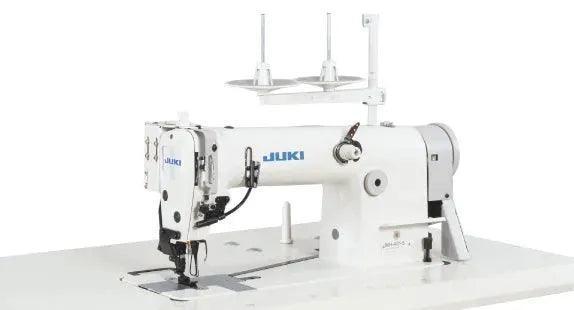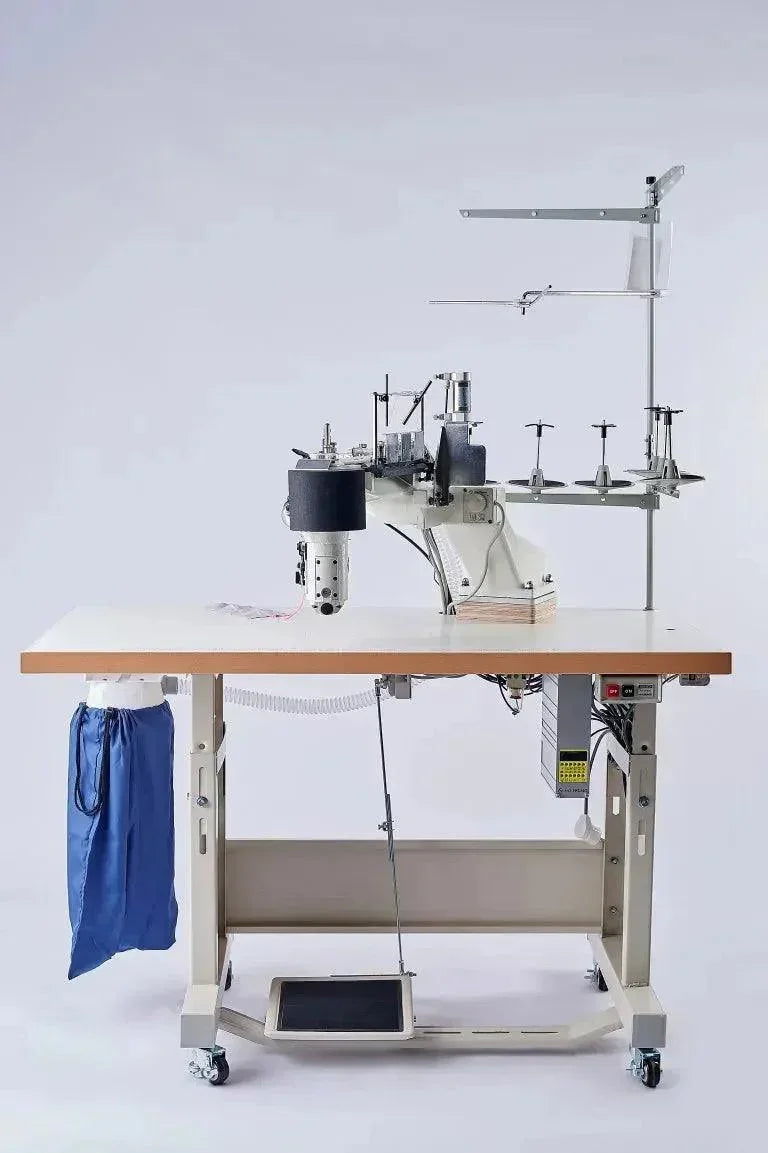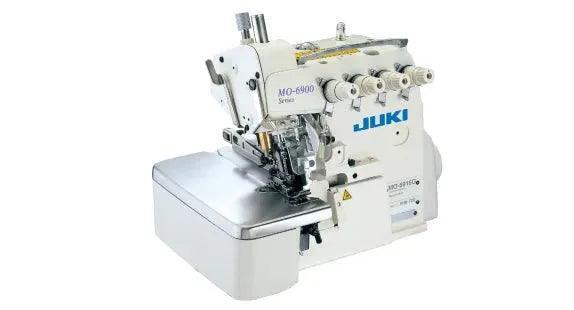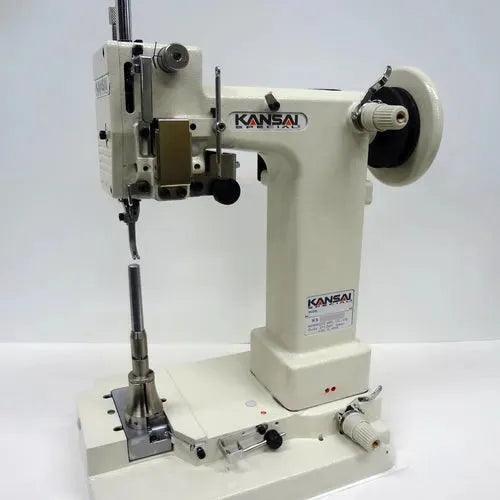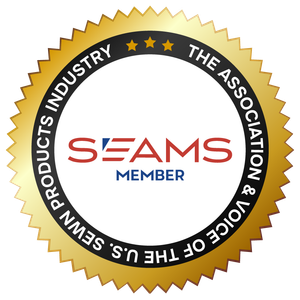Sewing Machines
The global fashion and textile industry relies heavily on the efficiency of industrial commercial sewing machines. Unlike standard domestic equipment, these machines are built to perform specialized “sewing” processes on different fabrics. Higher speed and longer working hours ensure enhanced efficiency in manufacturing settings. To achieve the desired productivity, you need to choose the right machine that delivers good performance and accuracy.
40+ Years of Trust
Empowering top manufacturers since 1981
KANSAI Distributor
Best specialized machines & support
Lifetime Warranty
On all PRIZZI custom sewing tables
Quality Control System
Rigorously tested sewing tables for durability
BLACK FRIDAY SALE
The Biggest Discounts - Up to 50% OFF
days
days
hours
hrs
minutes
mins
seconds
secs
Industrial CoverStitch Machine NC1103GDA-UTE- 1/4 (6.4 mm)
Industrial Flat-bed Sewing Machine FX4412P-UTC
Industrial Overlock Sewing Machine EXT5214-M03/333-2X4/KS375/PT
Industrial Button Sewing Machine MB-1373-00M
Industrial CoverStitch Machine NR-9803GPEHK-UTA-1/4 (6.4 mm)
Industrial CoverStitch Machine NR-9803GPEHK-UTA-7/32 (5.6 mm)
Belt-Loop Attaching Machine SX-6803P
Belt-Loop Attaching Machine SX-6803PD
Industrial Lockstitch Machine LH3578AGF
Industrial Button Sewing Machine JUKI MB-1377-12M
Industrial CoverStitch Machine W562P-01GBX364/UT103
Industrial Lockstitch Machine JUKI LZ-2280BB-0BD
Industrial Lockstitch Machine DLN9010ASS(H)WBAK118/SC920A/CP18A
Industrial Lockstitch Machine JUKI LU-1560N
Double Chainstitch Machine MH-380FU
Industrial Chainstitch Machine JUKI MH-382U
Double Chainstitch Machine MH-481U
Industrial CoverStitch Machine NFS6604GFMH-H-DD
Industrial Overlock Sewing Machine MO-6905G-0M6700
Industrial Flat-bed Sewing Machine SPX-211
Look around industrial sewing machine stores in Los Angeles? Or check online retailers to find the best match for your business needs. Use some guidance to make the right choice!
Read moreLook around industrial sewing machine stores in Los Angeles? Or check online retailers to find the best match for your business needs. Use some guidance to make the right choice!
What is an Industrial Sewing Machine?
Industrial sewing machines are machines intended to perform particular tasks in manufacturing settings. Unlike domestic machines, they can work thousands of hours and handle a variety of materials while providing excellent quality. Here is what makes machine sewing industrial equipment stand out:
-
More space between the needle and the body of the machine to handle larger pieces under construction;
-
Made of stronger materials to go through a large number of layers per minute;
-
Ability to create around 1600 stitches per minute;
-
Colors adjustable through threading systems and needles;
-
Adjustable stitch length and width controls according to the specific project needs;
-
Computerized interfaces to automate some functions and streamline significant processes.
Industrial sewing machines can be used to make a great assortment of products, like chair cushions and mattresses, clothes, and many more. Depending on your tasks, you may get a straight stitching, binding, overlock, or specialty machines. Many brands offer a wide range of sewing machines for different industrial needs, which requires users to do thorough market research before making the purchase.
Benefits of Buying an Industrial Sewing Machine
Sewing industrial machines for sale offer multiple benefits compared to regular domestic sewing machines. Their key benefits include:
Durability and heavy-duty construction: Made of high-quality materials, they can withstand frequent use within a short timeframe.
High speed and efficiency: Intended for high-speed sewing, they can produce a large number of items within a short timeframe.
Wide range of fabrics: Being able to sew multiple layers at the same time, they can handle lightweight and heavyweight fabrics.
Consistent stitch quality: Engineered for precision stitching, they deliver quality stitches even at high speeds.
Automatic functions: Equipped with automatic thread trimming, thread tension adjustment, and backtacking, they enhance efficiency and reduce manual intervention.
Efficiency for large-scale production: Used in heavy-duty settings, they deliver high productivity in garment manufacturing or upholstery.
Minimal maintenance: Due to their durable construction and quality components, they require less frequent maintenance.
Keep these benefits in mind when searching for industrial sewing machine sales. Choose the machine that works for your particular needs.
How to Choose the Right Industrial Sewing Machine
When choosing an industrial sewing machine, compare the available models based on the main features. This will help you identify the best equipment for your commercial needs. Here are the major factors to consider in a decision making process:
-
Production speed, ranging from 3,000 to 7,000 revolutions per minute (rpm);
-
Type of fabric you are planning to sew (cotton or denim, lightweight or heavyweight);
-
Stitch type you want to create (lockstitch, zigzag, or overlock);
-
Automation features to optimize the sewing processes;
-
Feed mechanism (drop feed, top feed, and triple feed) that depends on the type of fabric.
Don’t forget about energy consumption. Whether you have a small or large business, you may consider more eco-friendly models to save money in the long run.
Depending on your budget, you may look through affordable and more expensive models. Buying the most expensive industrial machines sewing machines shouldn’t be your automatic decision, even if you have sufficient funds for such a purchase. Instead, you should choose the machine with the right set of features for your sewing processes. Feel free to get a used machine or buy a new one. The pain point is to get good quality at the best price.
Popular Types of Industrial Sewing Machines
When checking new industrial sewing machines for sale, you get many options at your disposal. All of them have certain capabilities, which might determine your final choice. Here are the main types of industrial machines on today’s market:
Straight stitch machines specialize in creating the most basic sewing stitches. Also known as construction stitch machines, they have a unique ability to fabricate sewn shaped items.
Binding machines are used for professional fabric edge binding. Ideal for upholstery, leather goods, and garment production, they can meet extensive industrial needs.
Overlock machines can trim excess seam allowance while making a series of neat stitches. Coverstitch machines are meant mainly for hemming finished garment edges and creating decorative finishes.
Heavy-duty and specialty machines are designed with your heavy duty tasks in mind. With flexible presser foot pressure, you can sew any type of fabric with ease.
The variety of industrial sewing machines shouldn’t confuse you. Instead, you can find the machine with the necessary functionality.
Where to Buy Industrial Sewing Machines
When buying an industrial sewing machine, you should find a reliable place for the purchase. Here are the main spots:
Online marketplaces have become a convenient place to browse through available machines and compare prices. Each model usually comes with a detailed description, including the key features and customer reviews.
Local stores often have a wide range of industrial sewing machines, which are available for testing on the spot. If you’re interested in a specific model, you may ask a specialist for further assistance.
Specialized industrial sewing machine shops concentrate on heavy-duty equipment. There are always experienced staff who can share valuable insights and shed light on the best machines on today’s market.
Make sure the machine comes with a warranty, especially if you’re investing in an expensive sewing machine for industrial needs. Research the brand and model, test new and used machines before purchasing, and proceed with regular maintenance to ensure their proper functionality.
Price Range and Cost Factors
Prices on industrial sewing machines may vary depending on the type of machine, brand, inner components, and overall functionality. Basic straight-stitch industrial sewing machines cost between $300 and $1,000. More specialized machines are most expensive, with the price ranging from $1,200 to over $10,000. Fully automated or computerized machines may exceed $10,000. Remember that machines sold as part of a full setup, with the stand, table, and motor, cost much more than table or head-only models.
Small and large businesses with limited budgets can’t spend money on poor purchases. Shopping online can provide competitive prices. To find the best deal, consider buying an industrial sewing machine from trusted retailers. Make sure you get good quality for the paid price. Local dealers may offer discounts or free installation and service. The total industrial sewing machine cost should be calculated before the final purchase, so ensure you add all the extras.
Maintenance and Spare Parts
Industrial sewing machines are built for heavy duty manufacturing purposes. To keep these machines running smoothly and delivering high-quality work, you should meet regular maintenance needs. A well-maintained machine lasts longer and improves efficiency. Here is how you deliver a quality sewing machine industrial use:
-
Daily cleaning of lint, dust, and thread buildup.
-
Oiling all moving parts as recommended by the manufacturer.
-
Inspecting and replacing dull or damaged needles.
-
Checking and adjusting thread tension settings.
-
Inspecting belts, motor, and feed mechanisms weekly or monthly.
-
Tightening screws and inspecting for loose parts.
-
Ensuring the foot pedal or knee controls function properly.
In addition, you should keep all parts of your sewing machines under thorough control. Keep an eye on bobbins and bobbin cases, presser feet and attachments, driver and timing belts, tension springs, and servo and clutch motors. Make sure you have replacement needles in various sizes. Consistent care ensures commercially successful performance for years.
Conclusion
Dreaming about a high-quality commercial industrial sewing machine in South El Monte, Los Angeles, California? The modern market has tens of machines from professional brands. Making the choice takes time and effort since you need to do proper research. Compare the available options in terms of price, features, components, customer reviews, and other aspects. Check local retailers to find a great industrial sewing machine nearby.
Read lessFAQ
What is double needle lockstitch machine?
A double needle lockstitch machine is a sewing machine with two needles that sew two parallel rows of lockstitches at the same time. It uses two top threads and two bobbins, making it ideal for strong, neat, and decorative seams on shirts, jeans, and workwear.
What is an industrial sewing machine?
An industrial sewing machine is a heavy-duty, high-speed machine designed for continuous use in factories, workshops, and professional production settings. It features a powerful motor, strong metal components, and the ability to sew through thick or challenging materials like leather, denim, or heavy canvas. Unlike domestic machines, it is built to operate for many hours each day without overheating, making it a reliable choice for large-scale sewing tasks.
How to use an industrial sewing machine?
To use an industrial sewing machine, you first set it up and thread it carefully, following the manufacturer’s instructions. Once prepared, you adjust the tension and stitch length based on your fabric. Then, you guide the fabric with both hands while controlling speed using the foot pedal. Because industrial machines run faster and are more powerful than home models, it's important to start slowly, stay focused, and always prioritize safety to avoid injury or mistakes.
How much is industrial sewing machine?
The price of an industrial sewing machine can vary widely depending on the brand, type, and included features. Entry-level models generally start around 500 to 800 dollars, mid-range machines fall between 1,000 and 2,500 dollars, while high-end or specialized machines designed for heavy-duty materials can cost over 3,000 dollars.
What is the best brand of industrial sewing machine?
The best brand often depends on individual needs and specific projects, but some of the most respected names in the industry include Juki, Brother, Singer, Consew, and Pfaff. Juki is highly valued for durability and smooth operation, Brother machines are known for reliability and ease of use, while Consew and Pfaff excel in specialized and heavy-duty applications.
How to set up industrial sewing machine?
Setting up an industrial sewing machine involves assembling the stand and table, mounting the machine head, and connecting the motor and belt. After installing the thread stand and oil pan, you fill the machine with oil if it has an automatic lubrication system. Finally, you thread the machine carefully, adjust tension and presser foot pressure, and test the stitching on scrap fabric to ensure everything is running smoothly before starting actual work.
What are the different types of industrial sewing machines?
There are many types of industrial sewing machines, each designed for a particular task. Common types include lockstitch machines for standard straight stitching, overlock (serger) machines for finishing edges, coverstitch machines for hemming stretch fabrics, walking foot machines for thick or slippery materials, bar-tacking machines for reinforcing points like belt loops, and specialized machines for buttonholes or zigzag stitching.
What is the difference between an industrial sewing machine and a normal one?
The main difference is in build quality, power, and purpose. Industrial sewing machines are made for heavy-duty, continuous use, featuring stronger motors, metal internal parts, and faster stitching speeds that can reach up to 5,500 stitches per minute. They usually have larger work areas and fewer decorative stitches but offer far greater consistency and reliability. Domestic machines, on the other hand, are designed for lighter, occasional use and often include more stitch patterns for home projects.
What rate can industrial sewing machines operate at?
Industrial sewing machines can operate at very high speeds, typically between 3,500 and 5,500 stitches per minute, depending on the model. This high rate of operation allows manufacturers and professional workshops to complete sewing projects much faster than would be possible with standard home machines.
Who is buying industrial sewing machines?
These machines are purchased by garment factories, upholstery and furniture makers, shoe and leather goods producers, tailors, alteration shops, and small businesses looking to scale up production. Even some serious hobbyists who work with heavy fabrics or want professional-level results invest in industrial machines.
How to service an industrial sewing machine?
Servicing an industrial sewing machine involves regular cleaning to remove lint and debris, oiling moving parts according to the machine’s instructions, changing needles frequently, and checking the tension, belts, and motor performance. It is also important to inspect the timing and feeding mechanisms periodically to maintain even stitches. Many owners also schedule annual professional servicing to keep the machine in top condition and to prevent unexpected breakdowns.
How much does it cost to service an industrial sewing machine?
The cost to service an industrial sewing machine typically ranges from 100 to 250 dollars for basic maintenance. More complex repairs or part replacements, such as motor or feed mechanism adjustments, can increase costs significantly. Regular maintenance not only ensures smooth operation but also helps extend the overall lifespan of the machine, making it a worthwhile investment for any professional sewing setup.
- Featured
- Best selling
- Alphabetically, A-Z
- Alphabetically, Z-A
- Price, low to high
- Price, high to low
- Date, old to new
- Date, new to old
